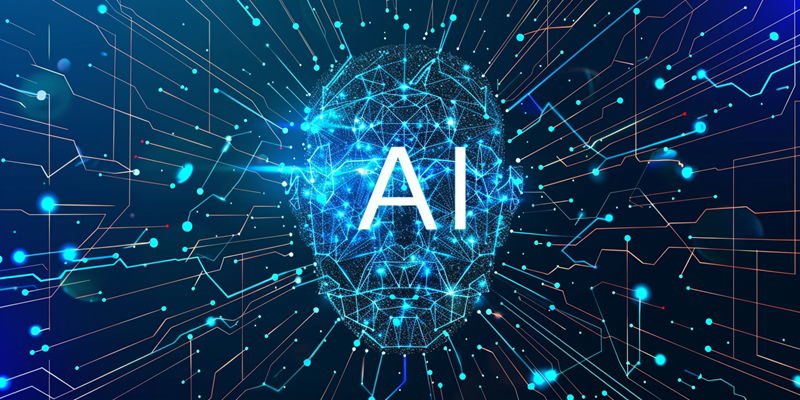In the dynamic expanse of modern business, the act of finding and securing top talent has become integral to organizational success. With artificial intelligence (AI) emerging as a juggernaut of technological progress, its profound impact on the recruitment industry is undeniable. AI is redefining recruitment paradigms, enabling a fusion of efficiency and enhanced candidate engagement that was once a mere aspiration. By scrutinizing the comprehensive landscape of AI-driven recruitment, from streamlined processes to predictive analytics, we gain insight into how this evolution is not just reshaping the approach to talent acquisition but also elevating the candidate experience to unprecedented heights.
Streamlining the Recruitment Process with AI
For recruiters and hiring managers, AI has become a trusted ally in combatting the historically laborious recruitment tasks. By employing AI technologies, such as resume parsing software, the initial stages of candidate selection are being expedited with an impressive level of accuracy. These tools sift through vast numbers of applications, identifying relevant skills and experiences that match job descriptions, thereby liberating recruiters from the confines of manual screening.
Furthermore, AI-scheduled interviews are eliminating the once cumbersome back-and-forth communication between candidates and recruiters. Intelligent systems extrapolate availability and preferences from both parties to coordinate suitable meeting times. This not only streamlines the scheduling process but also signals to candidates that their time is valued—a subtle yet powerful component of a positive recruitment experience.
Enhancing the Candidate Experience through AI
The introduction of AI in recruitment has heralded a new era for candidate engagement. AI-powered chatbots are the vanguard of this transformation, facilitating real-time conversations and providing immediate responses to inquiries. These conversational AI platforms offer a semblance of personal interaction, nurturing a relationship with candidates even before the first human touchpoint.
This technology also extends tailored communication to candidates about their application status or next steps, curtailing the infamous ‘black hole’ of recruitment wherein applications seem to disappear without acknowledgment. By keeping candidates informed and engaged, AI magnifies the perception of a responsive and considerate employer brand, which can be the deciding factor for top-tier talent debating between multiple offers.
The Rise of Predictive Analytics in Recruitment
Beyond the direct interactions lies the realm of predictive analytics in AI-driven recruitment. Tools harnessing the power of AI assess a candidate’s potential fit not just based on past experiences but also their likely future path within the company. Predictive analytics empower recruiters to make informed decisions by discerning patterns and likely outcomes from previously disparate data points, such as performance metrics and behavior profile assessments.
This revolutionary approach moves the recruitment process from a historically reactionary stance to a strategic, future-focused one. Data-driven decision-making means organizations can more effectively align candidates with roles that suit their skills and anticipated career evolution, fostering long-term employee satisfaction and reducing costly turnover.
Navigating Ethical Considerations and Bias in AI
AI’s ascendancy in recruitment is not without complications, as ethical considerations loom large over the unchecked expansion of algorithmic decision-making. One of the most pressing concerns is the potential for built-in biases, which if unaddressed, can systematically disadvantage certain groups of candidates. Recognizing these pitfalls, forward-thinking organizations are actively seeking ways to mitigate bias, such as by diversifying training data and implementing ongoing audits for AI fairness.
Moreover, issues surrounding privacy and data security are at the forefront of the conversation around AI implementation. With sensitive personal information in play, companies must navigate regulations and ethical standards to preserve candidate trust and maintain integrity within their recruitment practices.
The Future of AI in Recruitment: What’s Next?
Peering into the not-so-distant future, AI stands as a beacon of innovation in recruitment. Advances in machine learning algorithms and adaptive AI systems are projected to further individualize the candidate experience, marrying technological prowess with a human-centric approach to recruitment. We might soon witness AI’s reach extending into areas such as employee development and retention, leveraging data not only to hire but to continuously nurture talent.
Anticipated trends include the integration of AI in crafting meaningful career development paths for employees, and the emergence of more nuanced analytics capable of predicting organizational needs. As AI augments the human elements of recruitment, the industry anticipates a future where technology and personal touch converge to create more comprehensive, and decidedly human, recruitment experiences.
Conclusion
In today’s fast-paced business milieu, attracting and hiring the best talent has become a crucial element for corporate triumph. Artificial intelligence (AI) has burst onto the scene as a powerhouse of technological advancement, transforming the recruitment field in profound ways. AI has reshaped the process of talent acquisition, marrying efficiency with improved engagement with job candidates in ways previously only envisioned.
By delving into the nuances of AI’s role in hiring, we uncover how it streamlines the recruitment workflow and brings predictive analytics into play. These advances provide a clearer picture of a candidate’s potential fit and future performance. This technological evolution is doing more than just changing how companies find talent; it’s also significantly upgrading the job search experience for candidates. AI’s integration into recruitment strategies is setting new standards, taking both the efficacy of the hiring process and the quality of candidate interactions to new levels that were once considered unattainable.

